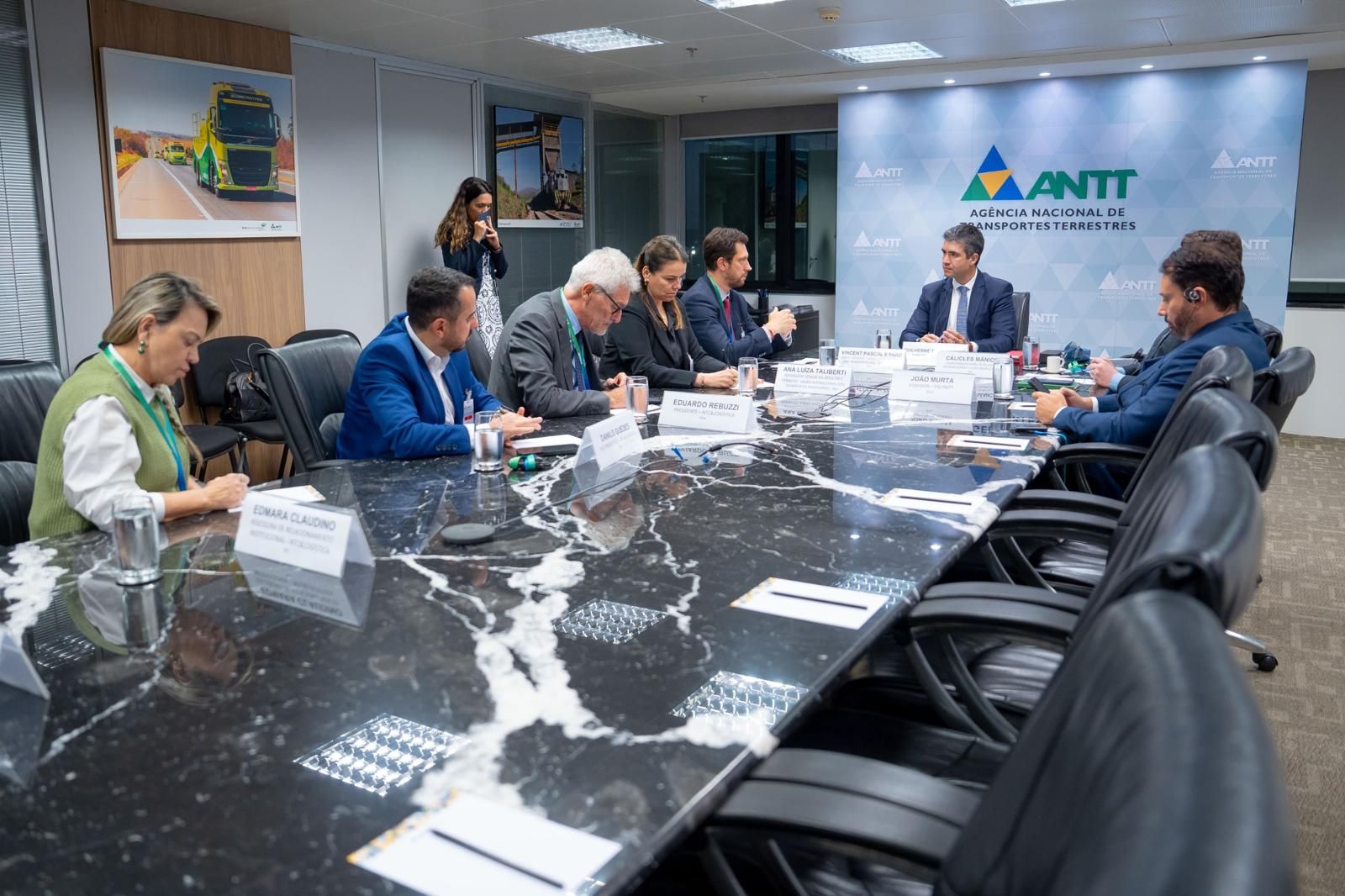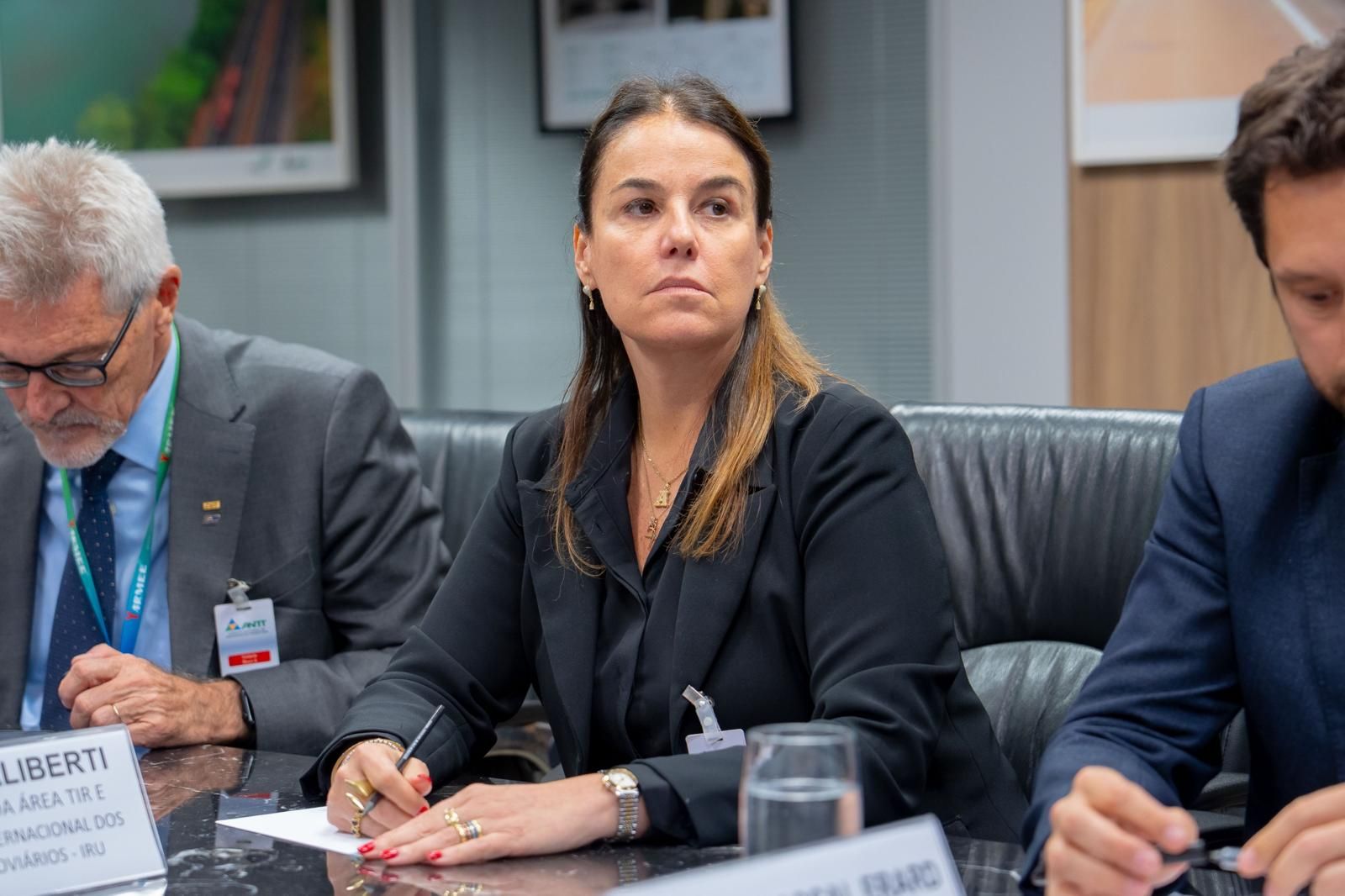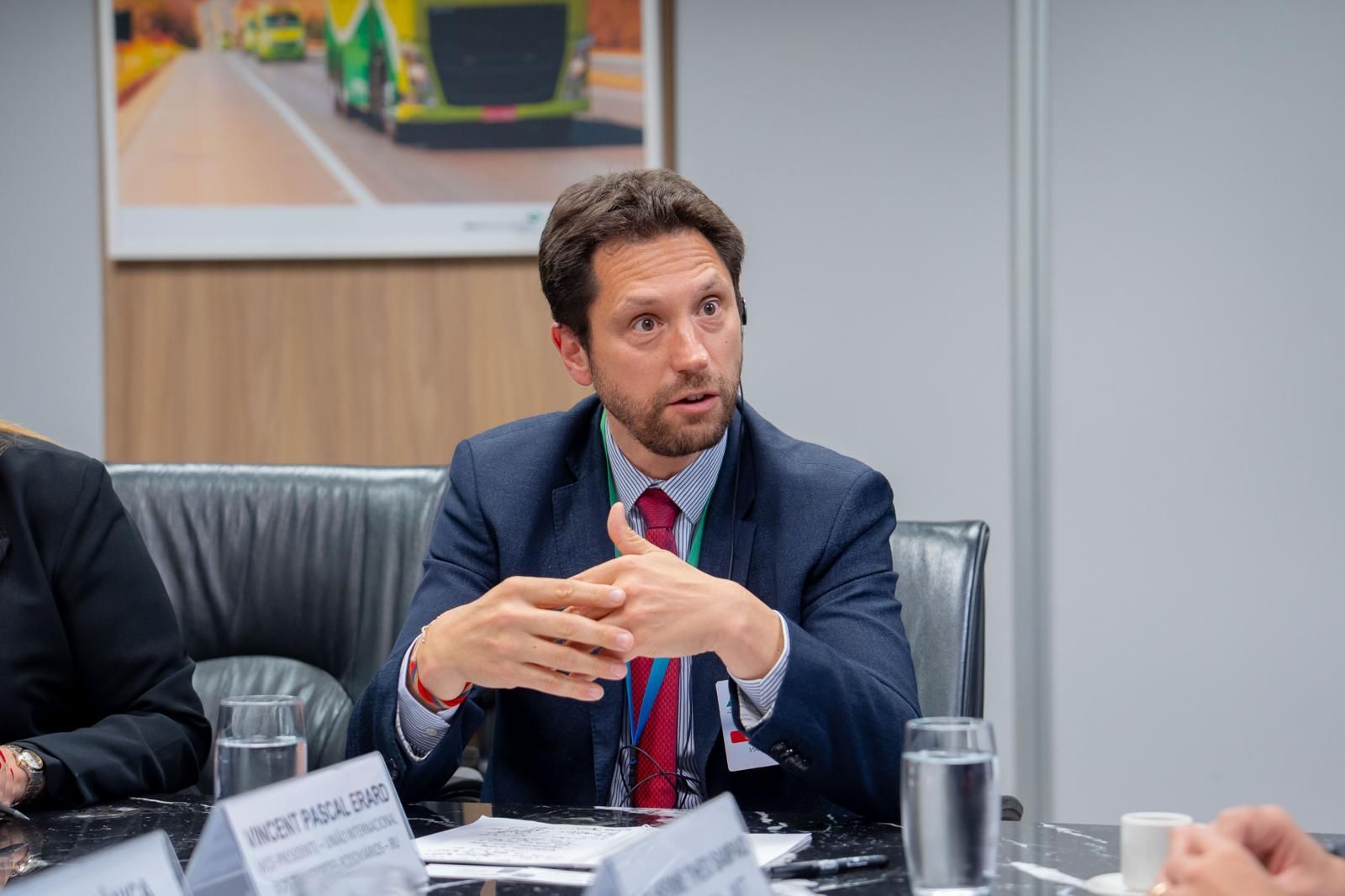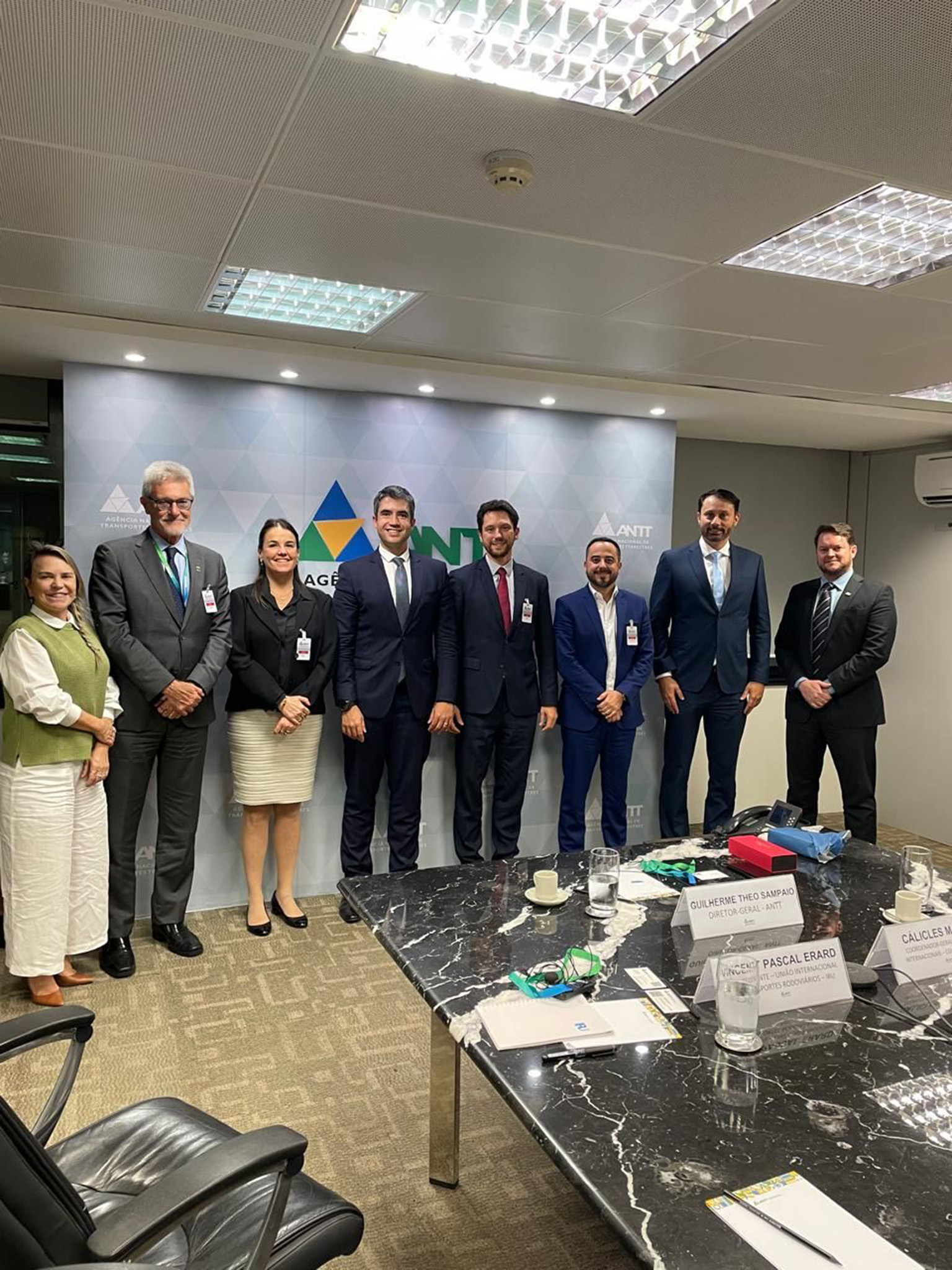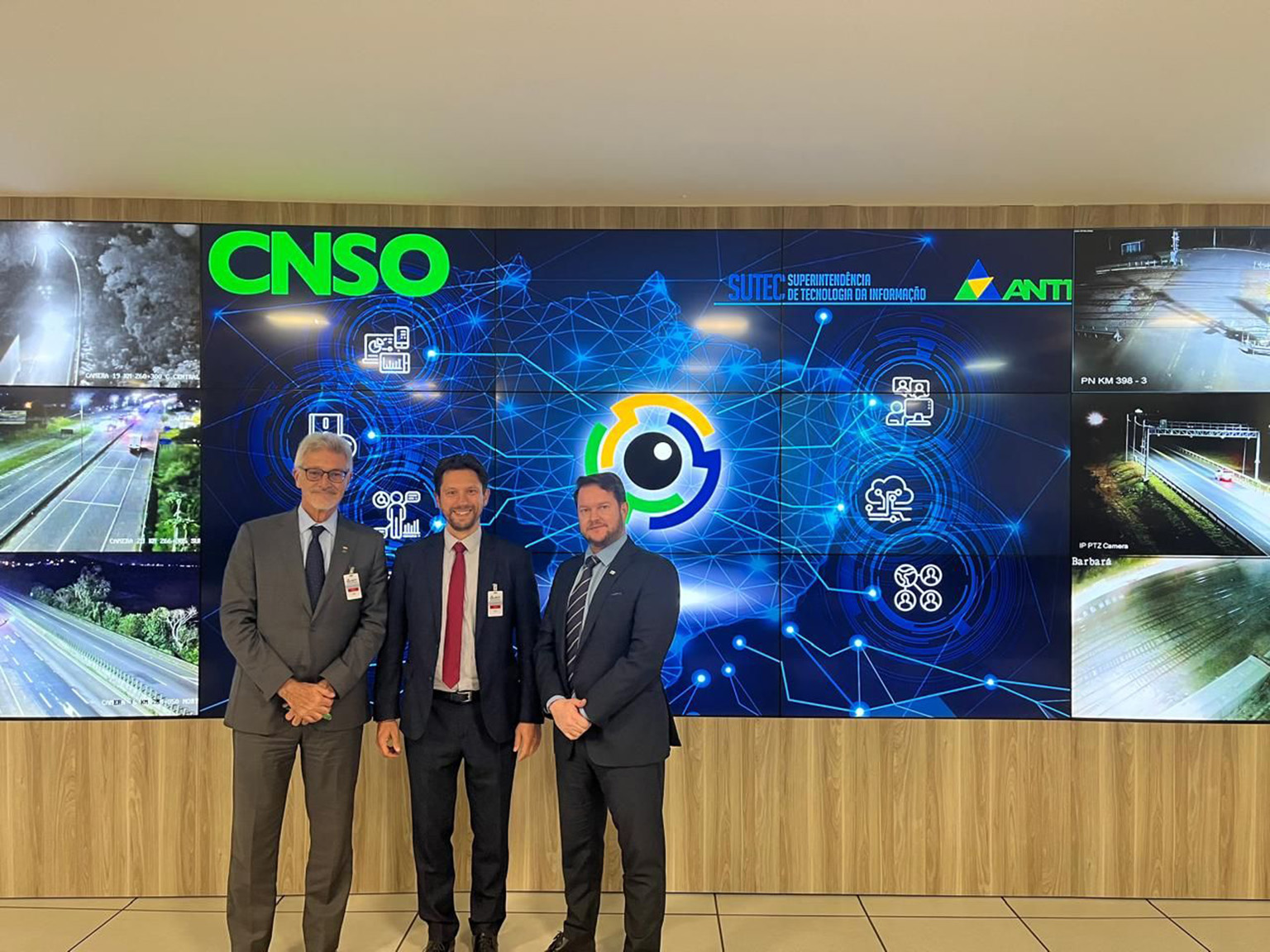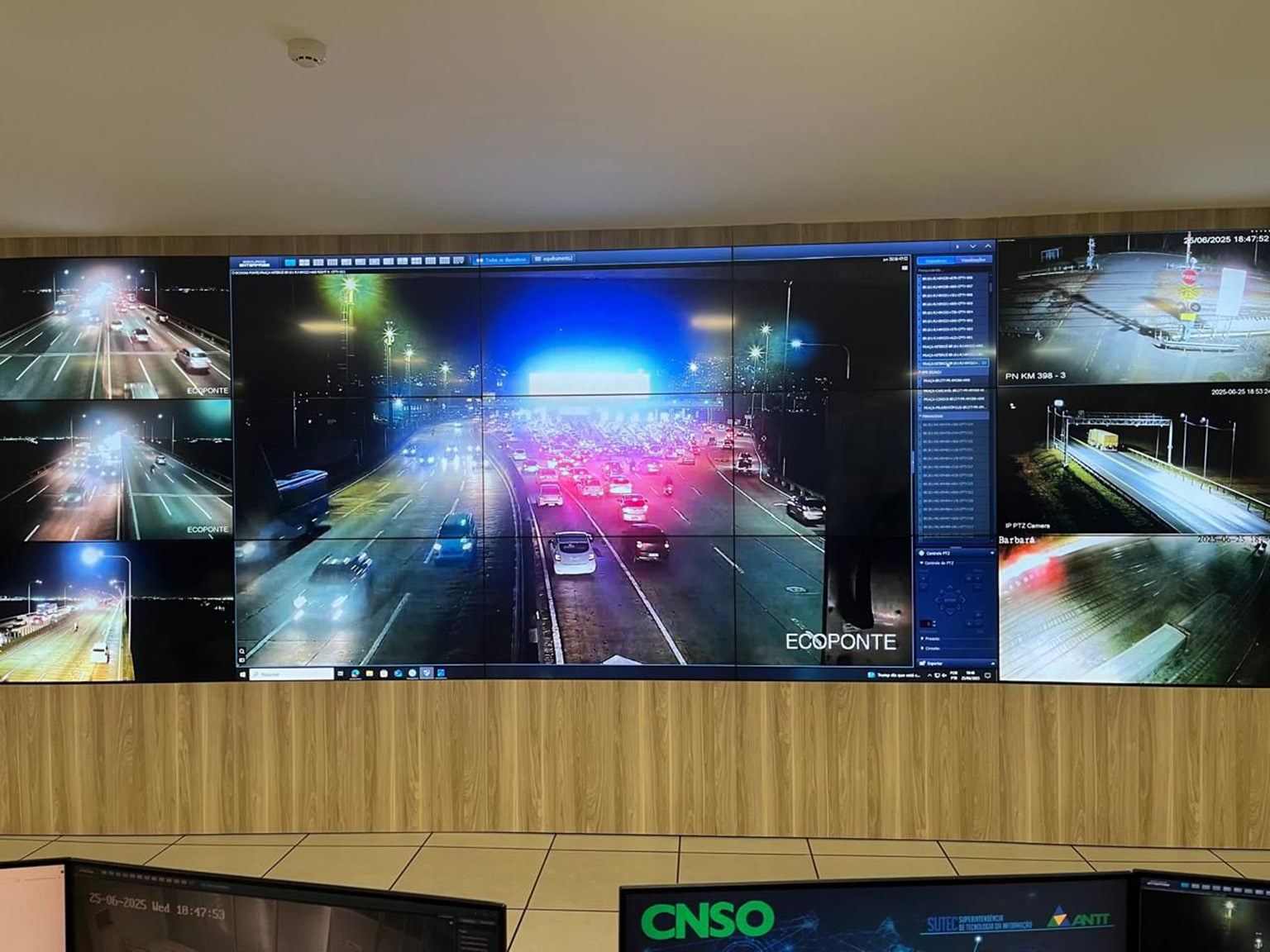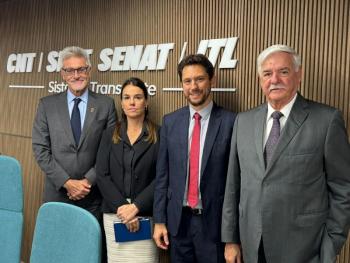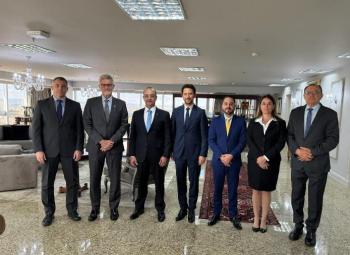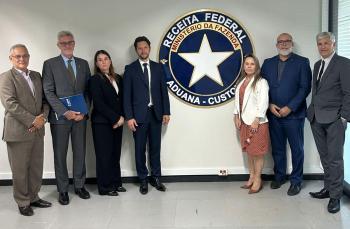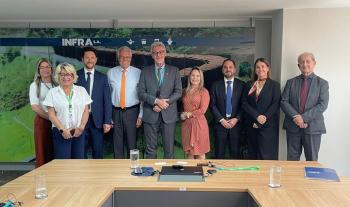With the Bioceanic Corridor and COP30 on the agenda, Brazil is setting ambitious goals to expand trade and make its crucial road freight sector more sustainable. IRU was in Brazil last week, with its member NTC&Logística, for high-level meetings on TIR and decarbonisation.
IRU Senior Director of Strategy and Development Vincent Erard and NTC&Logística held a series of key meetings last week in Brazil to support the government and road transport sector in delivering more sustainable logistics and trade.
The discussions mainly focused on three pressing priorities: supporting the Bioceanic Corridor initiative to expand trade westwards towards Paraguay, Argentina and Chile; Brazil’s accession to the TIR system; and the decarbonisation of commercial road transport.
In high-level talks with Brazil’s Vice President, Geraldo Alckmin, Vincent Erard stressed the importance of adopting international best practices and the role of strong public–private collaboration to unlock the full potential of the Bioceanic Corridor.
The Vice President highlighted the ratification of the TIR system as a key priority, noting it supports Brazil’s efforts to streamline customs and modernise regulations. He confirmed that submitting the TIR accession process to the Brazilian Congress aligns fully consistent with the country’s current policy agenda.
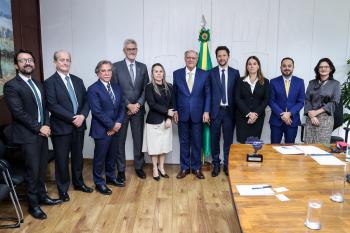
The talks also focused on sustainability and the future of green logistics, in view of Brazil’s leadership role in hosting COP30 in Belém later this year. The meeting looked at opportunities to accelerate Brazil’s decarbonisation efforts with alternative fuels and efficiency measures, as recommended by the IRU Green Compact: a global roadmap to carbon neutrality in road transport by 2050.
Prior to the meeting with the Vice President, discussions with the National Land Transport Agency (ANTT) and its General Director, Guilherme Theo Sampaio, explored sustainability and decarbonisation efforts, particularly along the Bioceanic Corridor.

